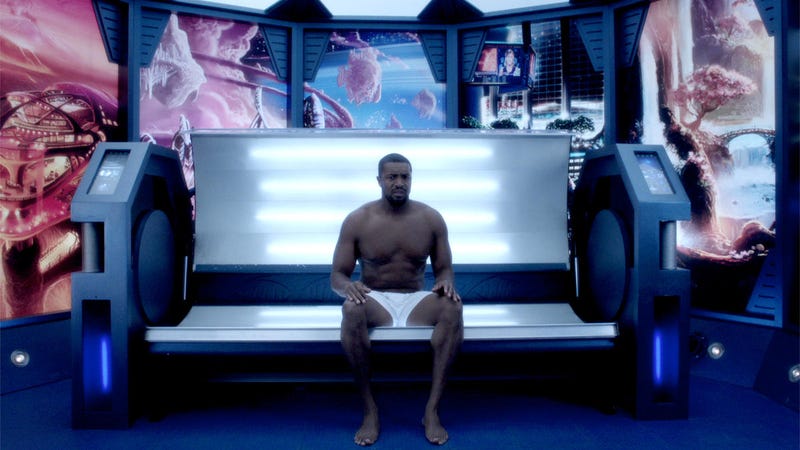I think the crucial difference is how the transporter works, if it moves your very molecules and atoms though space via the stream and reconstitutes you then yes absolutely it's still you. However if it just sends your information as data to the destination and then that end constitutes you then you're dead and a new you takes over.
I don't really understand this perspective. I expect that most people have this sense that to still "be you", both the atoms and their relationships to each other can't change in transit. So teleportation-via-wormhole is going to seem to them to be safe, since it's just like walking through a door. You're bending space such that regular movement is still getting you somewhere far away. What Juneau Joe and I are saying is that really we have no reason to think that regular movement is safe - it's weird to think that continuity of consciousness is preserved by keeping the same atoms and relationships. It's not that teleportation isn't a lot like killing you, it's that the same thing happens when you're sitting still.
The idea is something like that the universe is a string of programmable Christmas lights. You can create the illusion that there's a single light moving around by having them light up in sequence, but that doesn't reflect what's really happening. If I send two light-trajectories at each other I can make it look like they meet and bounce off or pass through, but there's no right answer here as to which has happened. The lights that you're watching move around are not actual entities; they just look that way. Actually what you're seeing is just a pattern of behavior in a very large number of mostly-unlit lights. And when I make it look like two lights are bouncing off each other you can't point to one of the two moving lights afterwards and say that that one corresponds to the one that was on the left in the beginning.
But you're seeming to say that you preserve consciousness just by using the same atoms. I can chop you up and as long as I carefully write down where each atom was as I remove and bag it, I can put you back together and you'll come back just like waking up from a night's sleep, and that will be in every sense the same person that went into the transporter. I don't understand what's motivating this other than a belief that souls attach to specific atoms (and as Joe has noted it's a little odd, physically, to talk about "specific atoms"). Surely I've disrupted whatever pattern is responsible for you being you, and when I put your body back together it's a new person with your memories, etc. Why does the identity of your constituent atoms matter, especially when to the best of our knowledge atoms are more like lit Christmas lights in a programmable string rather than discrete entities that move around?




